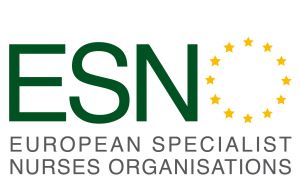Advancing the role of specialist nurses in Europe with ESNO

The European Specialist Nurses Organisations (ESNO) (www.esno.org ) is founded in 2006 and aims to highlight the role played by specialist nurses in Europe.
Nurses are the largest group of professionals (three million) in European healthcare, and it is expected that in the future the role of nurses will further expand, including that of specialist nurses or nurse specialist. Thus, nursing societies such as the EAUN are eligible for ESNO membership to support the goals and long-term strategy of ESNO. In 2017, 19 specialised nursing organisations became ESNO members, further expanding ESNO’s influence.
ESNO’s long-term strategy will undergo updates this year and its main goals include the following: (1) A stronger professional organisation; (2) Stronger position in healthcare or in the interdisciplinary team and (3) Greater involvement in decision-making at local and EU policy level. A dominant concern is to achieve wider recognition of specialist nurses in the next five years across Europe.
For ESNO, lobby initiatives and public relations in the European Union (EU) are important, striving for a better position for specialised nurses in Europe. Ber Oomen (NL) represents ESNO and its members in the EU, where he spends time at the European Parliament in Brussels to link-up with politicians. Moreover, ESNO also works with physicians, pharmacists and patient organisations to gain more influence at the EU and European Parliament.
Training framework
ESNO aims to set up a common training framework as referred in the Directive of Recognition of Qualifications (http://eur-lex.europa.eu, search for CELEX 32013l0055). In this directive, the European Union has invited the Nurse Specialist to bring more recognition and unity in the nursing profession. In recent WHO publications, this subject is recognised with reference to ESNO as the key non-government organisation (NGO).
With this framework, ESNO intends to standardise education in Europe for specialised nurses and nurse specialists. ESNO also wants to contribute to nursing guidelines on nursing diagnosis, interventions and outcomes. ESNO works with the European Federation of Nursing (EFN) and the International Council of Nursing (ICN).
“For ESNO, lobby initiatives and public relations in the European Union (EU) are important, striving for a better position for specialised nurses in Europe.”
The level of education of specialist nurses in Europe varies. The Netherlands, United Kingdom and the Scandinavian countries, for example, already have a developed and differentiated educational level of nursing from MBO level to master’s level (university). Nurses Specialists on master’s level work at a complex nursing level and take over medical tasks from physicians. In the southern and eastern European countries, these different levels of education are less developed. The European Qualification Framework (EQF) describes at a European level the eight common European reference levels in terms of learning outcomes, knowledge, skills and competences. These can be used by National Qualification Frameworks (NQF) and relate to the EQF. With this framework, levels of education among European countries can be compared.
The European Commission’s Directorate-General GROW and Directorate-General Health and Food Safety (SANTE) requested ESNO to map the Specialist Nurses health workforce. They started with diabetes in cooperation with the Foundation of European Nurses in Diabetes (FEND), and collaborated with scientists of the University of Leuven (BE). The first step is a literature review classified by age, with the whole process involving five steps.
ESNO projects
ESNO also develops E-books which describe the common content of the nursing profession of a specific area. The E-book “Respiratory Nursing at a Glance” has been completed. The E-book on mental health is due for completion this year, while the E-book on oncology is scheduled for next year. ESNO encourages its member organisations to participate in the programme and develop an E-book about their own nursing profession. The project is a good opportunity for these groups to present the scientific core of their nursing specialties, an effective way to highlight their tasks to the general public.
ESNO also aims to establish a European Accrediting Nursing (EAN) programme since specialist nurses need a uniform European accrediting body to be accredited and recognised across Europe. To reach these goals, ESNO collaborates with National Regulatory Bodies Nowadays, there are big differences in legal procedures among countries, with some still lacking a specialised register for accrediting nurse specialists or specialist nurses.
Membership benefit
The EAUN can benefit from its ESNO membership by being an active member. On the European level, ESNO is very active to achieve a uniform educational level for specialist nurses and nurse specialists in Europe. The EAUN can support this by attending the meetings ESNO organises where it can present the EAUN’s core mission. The EAUN can also support the Education Committee that ESNO has established this spring to develop a frame work for the recognition of a professional level of specialised nursing. ESNO has invited educators from societies to join the committee to work on common training references that provide a common training framework.
ESNO Summit in Brussels
The ESNO will hold its second summit in autumn this year in Brussels (30 November – 1 December), with the summit theme ‘Shifting from Hospital to Primary Care: The role of the specialist nurse’. Topics include: Setting the scene; Experiences with care transition; The patient perspective; Future challenges.
More information at www.esno.org/esno-summit
ESNO is organising an abstract or poster session during the summit, and the EAUN has submitted a poster for presentation.
Mrs. Jeannette Verkerk-Geelhoed, EAUN Board Member, Groene Hart Ziekenhuis, Gouda (NL), j.verkerk@eaun.org

